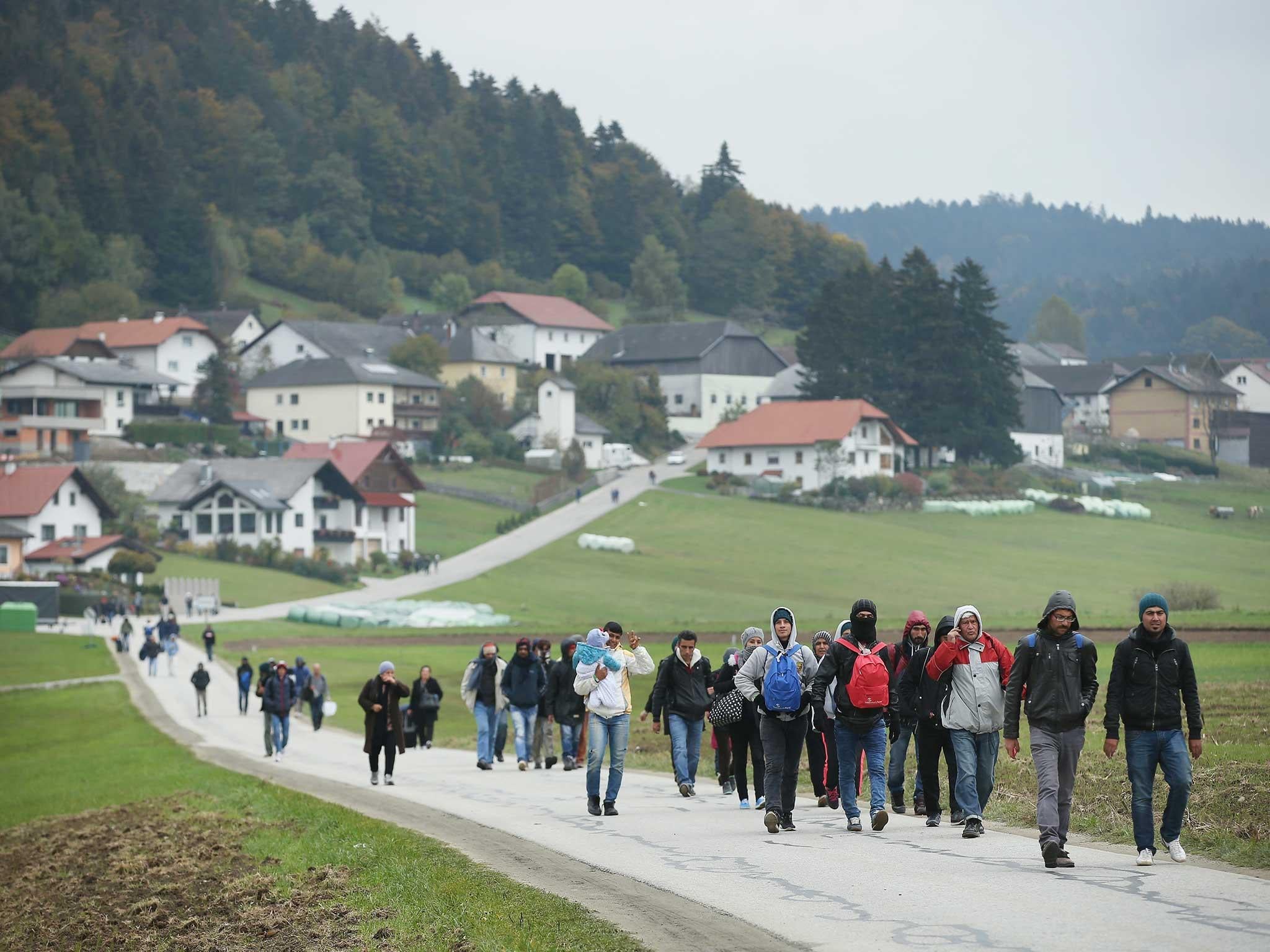Austria 'preparing to send troops to protect EU borders' against refugees
Country joins alliance of 16 countries creating 'border defence project' for external EU boundary

Your support helps us to tell the story
From reproductive rights to climate change to Big Tech, The Independent is on the ground when the story is developing. Whether it's investigating the financials of Elon Musk's pro-Trump PAC or producing our latest documentary, 'The A Word', which shines a light on the American women fighting for reproductive rights, we know how important it is to parse out the facts from the messaging.
At such a critical moment in US history, we need reporters on the ground. Your donation allows us to keep sending journalists to speak to both sides of the story.
The Independent is trusted by Americans across the entire political spectrum. And unlike many other quality news outlets, we choose not to lock Americans out of our reporting and analysis with paywalls. We believe quality journalism should be available to everyone, paid for by those who can afford it.
Your support makes all the difference.Austrian is planning to send troops to “protect” the European Union’s external borders against refugees.
Hans Peter Doskozil, the defence minister, said Austria was one of 16 countries around the Balkan route used by more than a million migrants to journey from Greece into Europe who are cooperating on the new “border defence project”.
“The western Balkan route is still not as closed as it should be,” the Social Democrat (SPÖ) minister told Die Welt.
“Unfortunately [there are] still significant activities by criminal smugglers and a significant number of migrants…if there is a mass influx of refugees, states involved in the border protection initiative want to be able to act quickly.”
Mr Doskozil said the Austrian government was working on legal changes to allow its troops to be deployed abroad for reasons other than humanitarian operations, meaning they could be sent within and outside the EU to “protect borders”.
In 2015 a record of 90,000 people applied for asylum in Austria after hundreds of thousands of migrants passed through the country after journeying along the Balkan route to Germany and other European countries.
More than 10,000 migrants crossed into Austria in a single day at the height of the refugee crisis in October 2015, but the number plummeted to 100-200 after the implementation of the controversial EU-Turkey deal.
The agreement came into effect last March, seeing anyone arriving by boat on Greek islands automatically detained under the threat of deportation, as borders closed across Europe.
Recep Tayyip Erdogan’s government has repeatedly threatened to scrap the deal over the EU’s opposition to human rights violations following a coup attempting to oust the President.
Mr Doskozil said the Turkish leader was not a “reliable partner of the EU” and that Europe should prepare for the possibility Ankara will “open the floodgates”.
The deal caused a dramatic drop in the number of asylum seekers arriving in Greece, but attempts to make the longer and more treacherous Mediterranean crossing from Libya to Italy have continued, claiming almost 5,000 lives last year.
The Austrian government has also been mounting its own attempts to reduce the number of migrants attempting to settle in the country.
Cabinet members agreed draft legislation in December that would bring in prison sentences of up to three weeks and €5,000 (£4,200) in penalties for anyone giving authorities false information.
The perceived prioritisation of Syrians over other nationalities has led a minority of people from countries including Afghanistan to lie about their origin in the belief it will help them gain protection in Europe.
Austria is among several European countries steadily tightening asylum laws amid growing anti-migrant sentiment. The far-right Freedom Party (FPÖ), whose candidate Norbert Hofer narrowly lost last year's presidential election, has been leading opinion polls with around 33 per cent for months.
The ruling coalition of the conservative People's Party (ÖVP) and SPÖ have taken note and are already punishing those who stay in Austria after being ordered to leave fines of up to €15,000 (£13,000) and six week prison sentences.
Almost 10,000 asylum seekers have reached Europe by sea so far this year, with the vast majority taken to Italy by rescue ships. Most are from Syria, followed by Afghanistan, Nigeria, Iraq and Eritrea.
Join our commenting forum
Join thought-provoking conversations, follow other Independent readers and see their replies
Comments